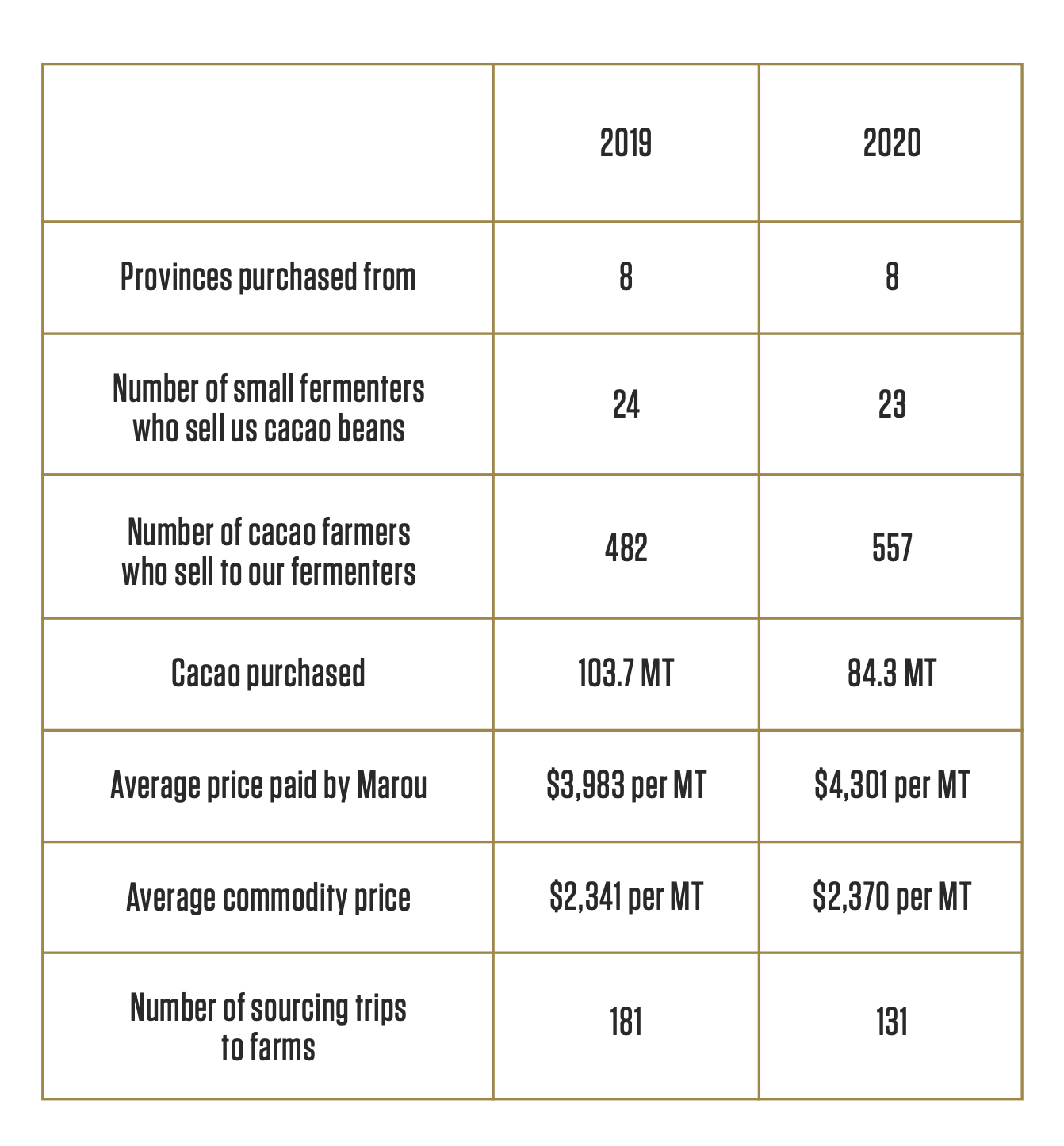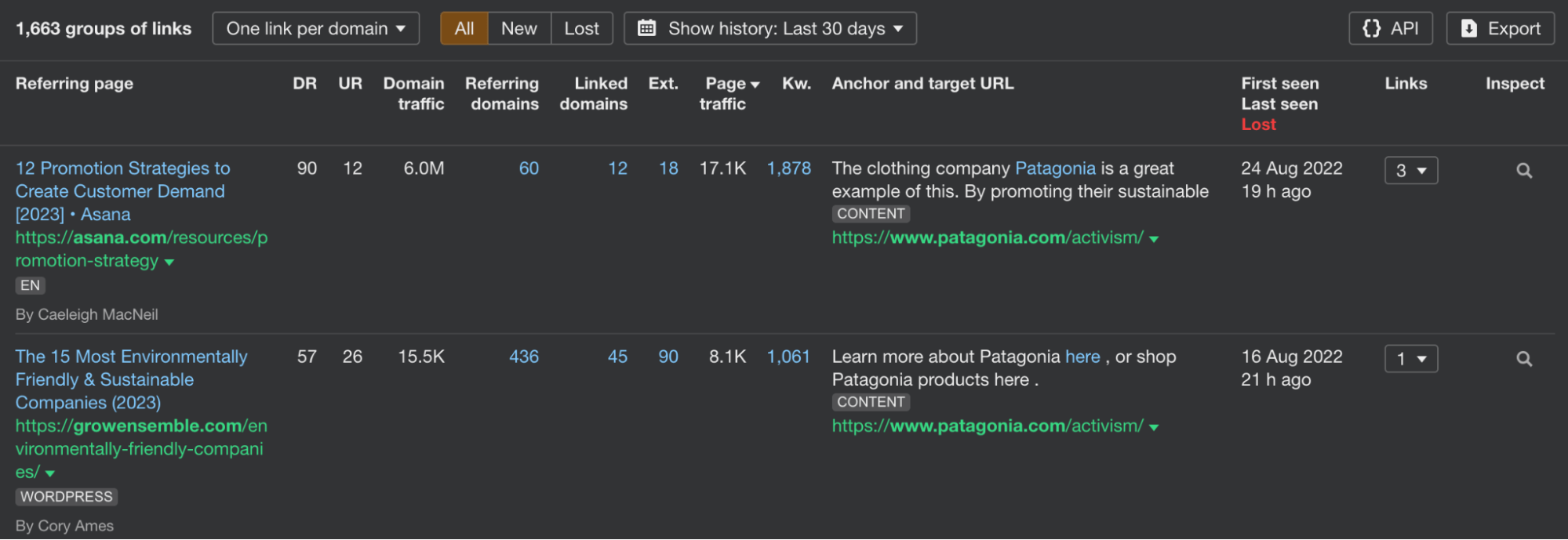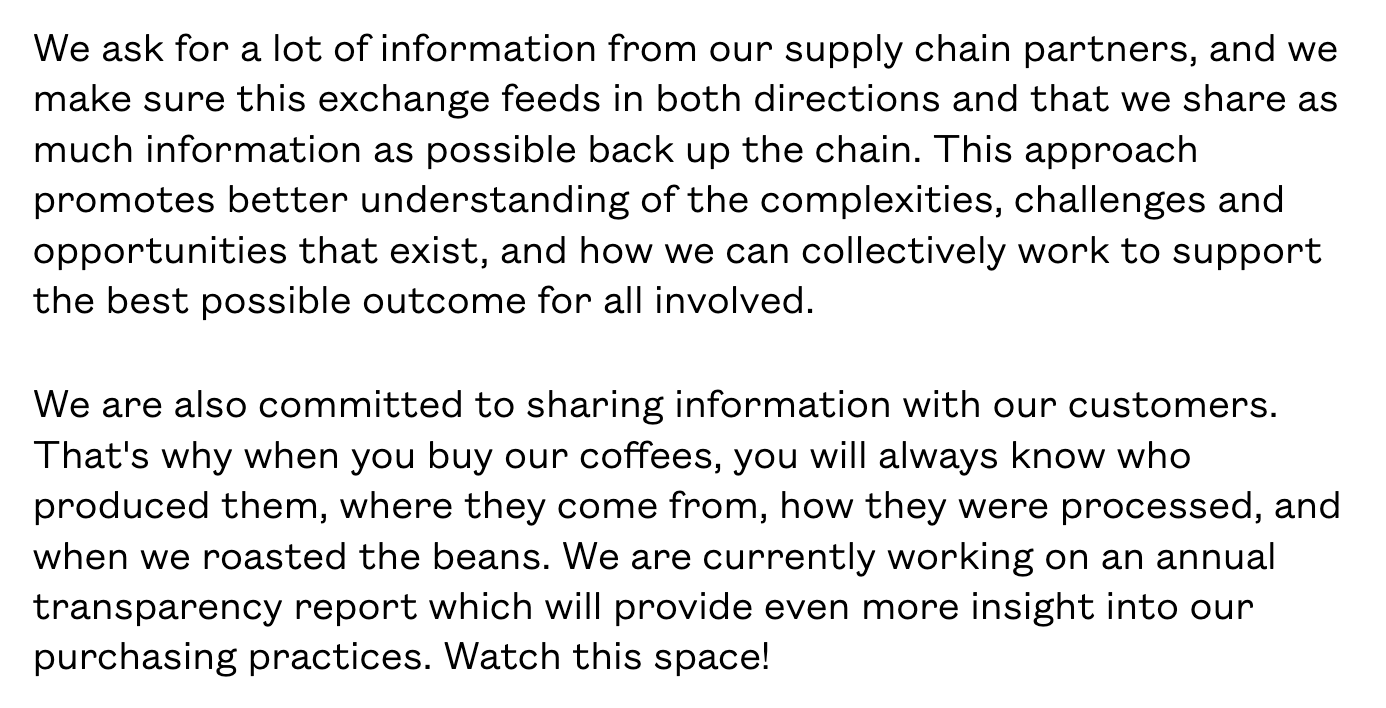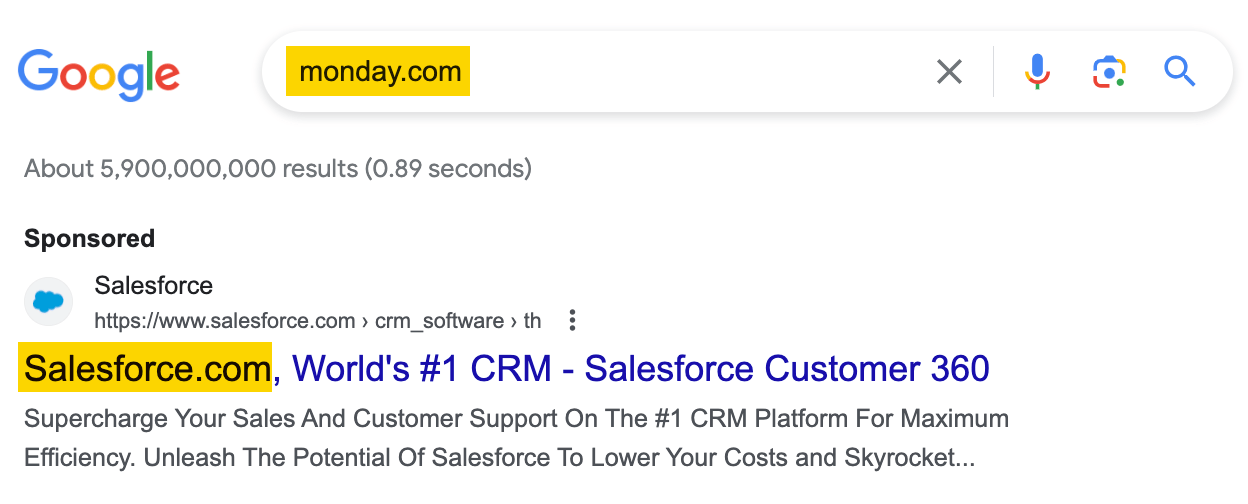Ethical marketing is when you promote a product, service, or brand in a way that aligns with your values and morals.
In this guide, we’ll explore the principles it encompasses and how you can incorporate them into your business.
Benefits of ethical marketing
Ethical marketing breeds trust among potential customers.
For example, Apple has focused heavily on privacy in its advertising efforts in recent years:
And it seems to be working—if this recent poll by my colleague is any indication.
Based on gut feeling, which of these companies do you think cares most about your data privacy?
— Joshua Hardwick (@JoshuaCHardwick) September 1, 2023
But “trust” isn’t the only benefit of so-called ethical marketing. It can also lead to positive publicity and backlinks.
According to Ahrefs’ Site Explorer, Apple’s Environment page has backlinks from ~4,400 referring domains (linking websites):

If we head to the Backlinks report and dig deeper, we find that many of these are positive mentions of Apple in well-known publications.
Here’s one from the BBC about Apple’s call to ban hazardous materials from its production lines:

And here’s one from an op-ed piece in The New York Times about climate change:

Bottom line? Regardless of what you think about Apple (it’s drawn flak for some of its opaque practices in recent years), its commitment to ethical marketing has built consumer trust—an immensely valuable asset in such competitive markets.
To give you a more well-rounded overview of what ethical marketing encompasses in practice, here are four more real-life examples.
Ahrefs
Ethical marketing at Ahrefs looks a little different than Apple’s:
We tell it like it is
We never oversell the utility of our toolset.
If it meant forcing a product pitch into our content, we’d rather not include it at all.

Giving back
In 2022, Ahrefs’ founder Dmytro Gerasymenko launched a donation-matching initiative in a show of support for Ukraine. For any amount an Ahrefs customer donated to an approved charity in Ukraine, we extended their subscription for double of that.
This resonated with many subscribers and won us organic mentions on platforms like Twitter, as well as media mentions—even though it certainly hadn’t been the aim of our donation-matching campaign.
While we’re humblebragging, we also funneled $200K into sponsoring podcasts, newsletters, videos, and more in December 2021. The move generated lots of positive publicity:
Whoa—I just received a mystery swag box from @ahrefs (a Why We Buy sponsor)
Is blogging a bit of a mystery to you? And do ya want your own mystery box?
Comment 🎁 on this post
I’ll send you Ahrefs’ free Blogging for Business course & you’ll be entered to win your own swag box! pic.twitter.com/sncW4vBUVF
— Katelyn Bourgoin 🧠 (@KateBour) September 7, 2022
Marou Chocolate
Another tasty addition to the list is one of Asia’s most well-loved bean-to-bar brands: Marou Chocolate.
The Vietnamese-based company maintains a close eye over the entire chocolate-making process, from working with Vietnamese cacao farmers through to overseeing the production line.
Such is its dedication that it publishes detailed reports on its sourcing process, how it supports small cacao producers, and more.

If this isn’t transparency, we don’t know what is. Have a read—it’s fascinating stuff.
Patagonia
Outdoor clothing label Patagonia’s mission statement is simple:
We’re in business to save our home planet.
Sounds unrealistic? In fact, the brand is well regarded for keeping true to its words and is a solid example of how sustainability is embedded in ethical marketing.

The brand also donates 1% of its profits to nonprofit environmental organizations under its self-imposed Earth tax.
These efforts are widely cited too. Check out its backlink profile in Ahrefs’ Site Explorer:

Market Lane Coffee
How could my personal favorite not make the list?
Market Lane Coffee is an Australia-based specialty coffee roaster and retailer, and I’ve always been a fan of its commitment to fairness, transparency, and sustainability.
It has dedicated pages on how these values are put to practice. Wordy as these are, it gives you a better sense of how it’s walking the talk:

That rounds things up!
Ethical marketing is such a complex topic that condensing things proved to be a challenge, so I’d love to hear your thoughts on Twitter.
What is ethical marketing?
Ethical marketing is when you promote a product, service, or brand in a way that aligns with your values and morals. This means not making inflated claims, practicing transparency and openness, and more.
What are the principles of ethical marketing?
The five key principles of ethical marketing are honesty and transparency, fairness and respect, maintaining user privacy, accountability, and sustainability. It can involve other principles too, depending on what you define as ethical.
What’s the difference between ethical and sustainable marketing?
The difference between ethical marketing and sustainable marketing is that ethical marketing promotes a brand’s values and morals, while sustainable marketing promotes environmental and socially responsible values.
Is sustainable marketing the same as ethical marketing?
No, it isn’t. Ethical marketing promotes a brand’s values and morals, while sustainability is an example of a brand value. Therefore, it is a subset of ethical marketing.

Content Copyrights Belong to The Author. All Rights Reserved.
We're A Dallas Digital Marketing Agency That is Experts At Social Media Marketing, Website Design and Emarketing and Promotion.




